
Senior physics writer Emily Conover joined Science News in 2016. She has a Ph.D. in physics from the University of Chicago, where she studied the weird ways of neutrinos, tiny elementary particles that can zip straight through the Earth. She got her first taste of science writing as a AAAS Mass Media Fellow for the Milwaukee Journal Sentinel. She has previously written for Science Magazine and the American Physical Society. She is a two-time winner of the D.C. Science Writers’ Association Newsbrief award, and a winner of the Acoustical Society of America’s Science Communication Award.

Trustworthy journalism comes at a price.
Scientists and journalists share a core belief in questioning, observing and verifying to reach the truth. Science News reports on crucial research and discovery across science disciplines. We need your financial support to make it happen – every contribution makes a difference.
All Stories by Emily Conover
-
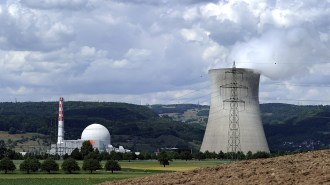 Particle Physics
Particle PhysicsA tiny neutrino detector scored big at a nuclear reactor
A compact method of detecting neutrinos provides new tests of physics theories and could lead to new reactor-monitoring methods.
-
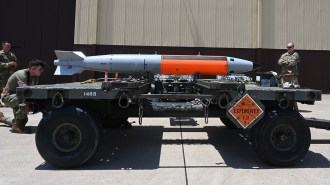 Science & Society
Science & SocietyWhat nuclear weapons experts will watch for under Trump
As Trump takes office, issues of arms control, the U.S. arsenal and weapons testing will be on the radar for many nuclear weapons researchers.
-
 Physics
PhysicsHula-hooping robots reveal the physics behind keeping rings aloft
The gyrations of hoop-slinging robots reveal that hourglass-shaped objects are best at keeping a hoop in the air.
-
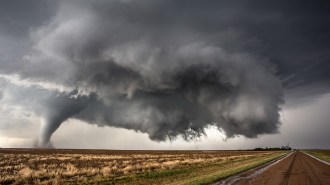 Particle Physics
Particle PhysicsCosmic rays could help reveal how tornadoes form
Subatomic particles called muons could measure pressure changes in supercell thunderstorms and the twisters they kick up.
-
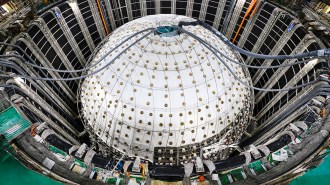 Particle Physics
Particle PhysicsA major new neutrino experiment is nearing completion
The JUNO experiment, which will study the ways of the electrically neutral subatomic particles, will be the largest of its kind.
-
 Physics
PhysicsFiber friction is the key to cozy knits
Friction between loops of yarn give knit fabrics the ability to take on a variety of shapes even when no force is applied.
-
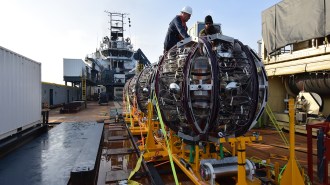 Particle Physics
Particle PhysicsScientists are building underwater neutrino telescopes in the Mediterranean
The KM3NeT telescopes, currently under construction, will catch high-energy neutrinos that could reveal secrets of the cosmos.
-
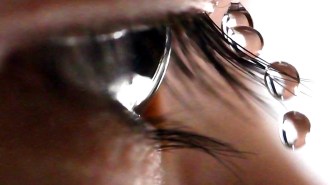 Physics
PhysicsEyelashes’ special features help fling water from the eyes
Eyelashes “micro-ratchet” structure and curved shape help wick water away from the eyes.
-
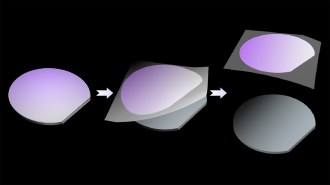 Materials Science
Materials ScienceScotch tape is key to creating thin films of diamond
The sticky stuff helped peel sheets of diamond less than a micrometer thick off silicon wafers, creating membranes useful for electronic devices.
-
 Physics
PhysicsNotre Dame is reopening. What does that mean for its acoustics?
Researcher Brian Katz is studying the acoustics of the Paris cathedral and how it’s been altered throughout the centuries.
-
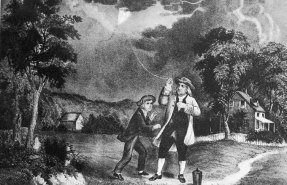 Science & Society
Science & SocietyA new biography of Benjamin Franklin puts science at the forefront
Richard Munson’s new book, Ingenious, shows how scientific research inspired the founding father’s diplomacy.
-
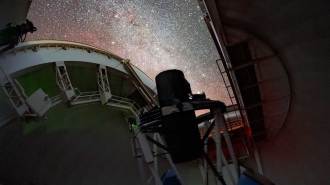 Cosmology
CosmologyEinstein’s gravity endures despite a dark energy puzzle
The DESI project previously reported that dark energy — long thought to be constant — changes over time. A new analysis reaffirms that claim.